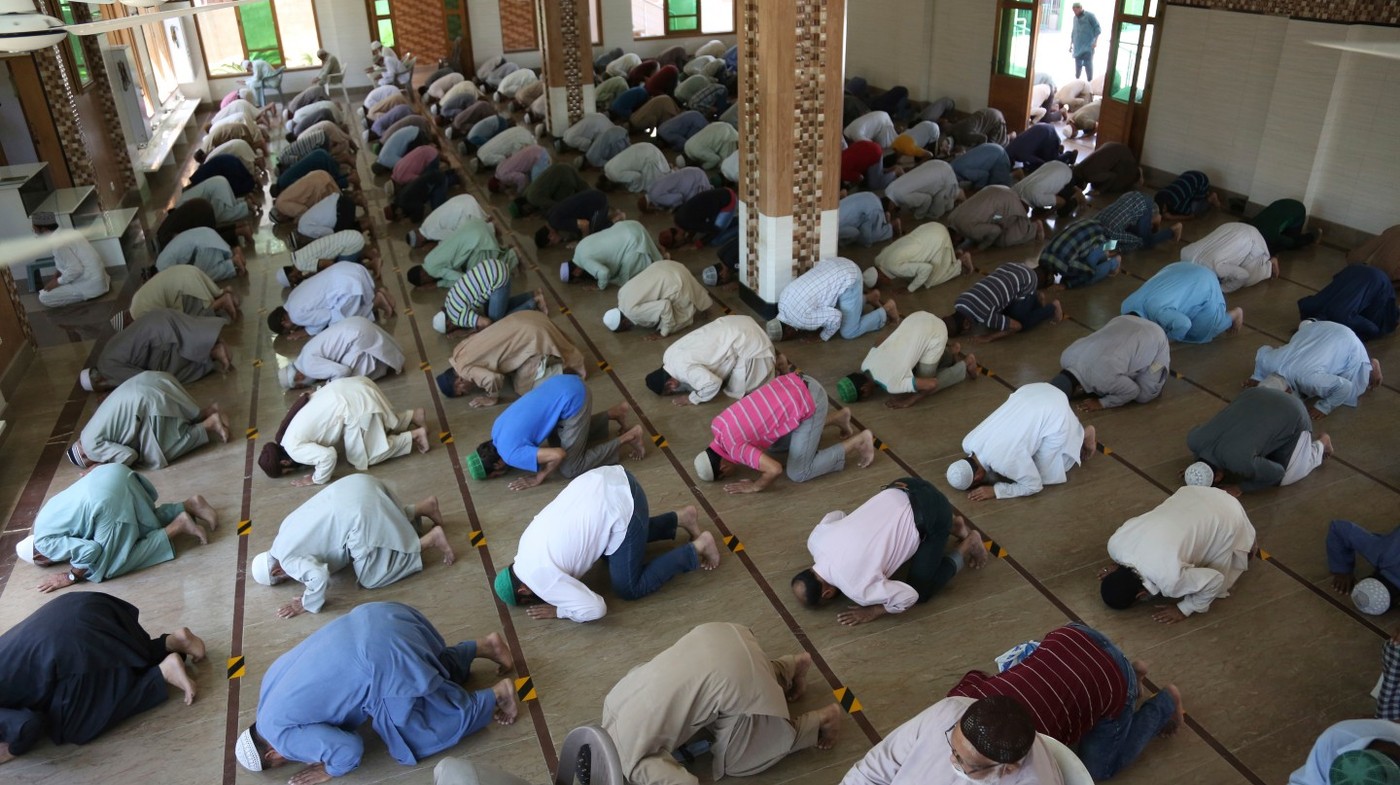Doctors Are Begging Pakistan to Close Mosques or Risk a Coronavirus Catastrophe
Doctors say it was a huge mistake to bow to religious clerics, who demanded an end to government restrictions right before Ramadan.
By Tim Hume Apr 23 2020

Pakistan’s leading doctors are begging the government to close mosques during Ramadan, fearing a catastrophic spike in coronavirus infections during the Muslim holy month.
On Saturday, Pakistan's leaders caved to demands from top religious clerics to lift lockdown measures that had restricted gatherings in mosques to five people or fewer. But doctors say that was a huge mistake, warning that high attendance at mosques — which are typically crowded during Ramadan — is likely to fuel a devastating outbreak.
At a news conference late Wednesday, doctors from the Pakistani Medical Association urged the government to rethink its decision to allow mosques to open during Ramadan, which is expected to begin on Friday in Pakistan.
“Unfortunately, our rulers have made a wrong decision; our clerics have shown a non-serious attitude,” Qaiser Sajjad, secretary-general of the Pakistani Medical Association, told the news conference.
Earlier this month, Pakistan’s government restricted gatherings in mosques as part of efforts to prevent a wider coronavirus outbreak. But many mosques openly flouted the rules, and last week, an influential group of clerics — who wield considerable influence in the devoutly Islamic country — announced that they would no longer observe the restrictions.
READ: Pakistan has banned large prayer services to prevent a coronavirus catastrophe. Clerics are holding them anyway
The government swiftly acquiesced to most of their demands, and on Saturday lifted the restrictions on group prayers as long as worshipers adhered to a 20-point list of standard operating procedures. These include wearing face masks, bringing prayer mats from home, banning the elderly and vulnerable from attending, and maintaining social distancing.
“I urge people to pray at home, but if they want to go to mosques, they will have to follow these 20 points,” Prime Minister Imran Khan said in a televised address, warning that the ban would be reimposed of there was a viral outbreak at a mosque.
Doctors have been alarmed by that approach, saying the guidelines will be impossible to implement, and are already being widely breached. Already, they said, mosques are being heavily attended by people in their 60s and 70s, meaning that the advice for vulnerable groups to stay away is not being followed.
Saad Niaz, a doctor speaking at the conference, warned ICU beds and isolation facilities in Karachi, Pakistan’s largest city, were already at capacity from a recent surge in coronavirus cases, and would be overwhelmed in a few days unless drastic measures were taken.
Pakistan has confirmed more than 10,000 cases of coronavirus, including 212 deaths, but experts warn the peak isn’t expected to hit until May. Many of the cases so far have been linked to religious gatherings.
READ: A prayer meeting has created huge coronavirus clusters in India and Pakistan
Ammar Rashid, an Islamabad-based public health researcher for research center Heartfile, told VICE News that the doctors’ appeal was “remarkable” for how directly it called out the clerics for being irresponsible.
“It is rare to hear such direct criticism of the ulema [a body of religious scholars] from any professional organization, which tend to stay out of religious matters,” he said.
“But the doctors did not hold back and basically told them they were directly jeopardizing lives.”
Despite the stark warning, he said, it wasn’t clear whether the government would heed the doctors’ advice. It has previously dismissed similar calls from provincial officials for tougher lockdown measures, dismissing them as attempts to politicize the outbreak, and several pro-government channels cut away from the doctors’ press conference as it aired, he said.
“The next couple of days will be crucial. If cases surge, as is likely, it may push them to reconsider.”
No comments:
Post a Comment